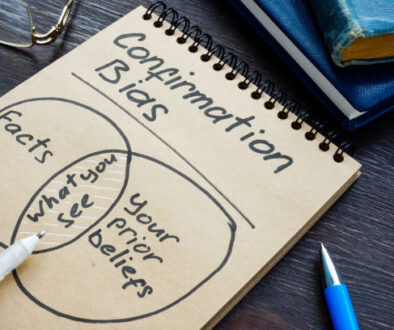You Become What You Think – Renewing Your Mind
Menanteau Serfontein – 18 February 2021. Updated 4 January 2022.
You become what you think.
In my experience, what and how we think, probably has the most dramatic impact on most aspects of our lives such as our goals, priorities, behaviour, the choices and decisions we make, our relationships, physical, emotional and mental health and the extent to which we exert self-control.
Lao Tzu, the ancient Chinese philosopher and writer said the following: “Watch your thoughts, they become your words; Watch your words, they become your actions; Watch your actions, they become your habits; Watch your habits, they become your character; Watch your character, it becomes your destiny.”
In short, what we think, we become.

Roy T. Bennett says “Attitude is a choice. Happiness is a choice. Optimism is a choice. Kindness is a choice. Giving is a choice. Respect is a choice. Whatever choice you make, makes you. Choose wisely.”
I agree fully with Bennett. We need to be aware of what and how we think and if it is not aligned with what and how we ought to be thinking, or what/how we would prefer to think, then we can and should choose to take corrective action. “…. continuously be transformed by the renewing of your minds ……” Romans 12:2
When we think constructively and with a positive mindset, it is empowering and results in meaningful purpose in one’s life, because constructive thinking provides purpose and direction. It also creates a positive belief in what’s possible and in one’s ability to set and achieve goals. It helps us to improve all the facets of our life, including our body and spirit. It helps us to get out of our comfort zone, to tackle tough challenges/obstacles and to become more effective. Constructive thinking also helps us to realise the importance of contributing to the common good and to meaningful causes that are bigger than ourselves.
Wendy Mass, Jeremy Fink and the Meaning of Life: “A fight is going on inside me,” said an old man to his son. “It is a terrible fight between two wolves. One wolf is evil. He is anger, envy, sorrow, regret, greed, arrogance, self-pity, guilt, resentment, inferiority, lies, false pride, superiority, and ego.
The other wolf is good. He is joy, peace, love, hope, serenity, humility, kindness, benevolence, empathy, generosity, truth, compassion and faith. The same fight is going on inside you.”
The son thought about it for a minute and then asked, “Which wolf will win?”
The old man replied simply, “The one you feed.”
When we embark on destructive and negative thinking, and allow our emotions to have too much free reign, it usually results in disempowerment, ineffectiveness, dysfunctional inter-personal relationships, personal “hang-ups”, physical illness and mental health/psychological problems.
The Table below contains examples of typical dysfunctional thought patterns that are detrimental and even destructive, as well as typical constructive thought patterns that are helpful and healthy.
| Detrimental/Destructive Thought Patterns | Constructive Thought Patterns |
| Shifting blame to everyone and everything but yourself. Thinking and acting like the victim. Complaining without seeking solutions. | Take responsibility and act accordingly. We all should have “agency” over our life. Agency is the sense of control that you feel in your life, your capacity to influence your own thoughts and behaviour, and have faith in your ability to handle a wide range of tasks and situations. Your sense of agency helps you to be psychologically stable, yet flexible in the face of conflict or change. Don’t relinquish your agency to anything or anybody else, except submission to God, in which event you are still responsible for your thoughts, words and behaviour. |
| Double-mindedness, chronic uncertainty, unwilling/unable to commit and being prone to procrastination. | Think and believe that there are solutions to a problem, consider the options, decide what to do and take action/implement. |
| When anxiety, fear, frustration, anger, etc are experienced, it is allowed to dominate. This makes it extremely difficult to make an accurate, rational assessment of the situation, resulting in debilitating consequences, which could, in extreme cases, result in mental health as well as physical problems. | When anxiety, fear, frustration, anger, etc are experienced, active steps are immediately taken to conduct a rational evaluation of the extent to which it is real or exaggerated. Actively endeavour to replace such thoughts with opposite thoughts that are life-giving, positive and generating inner peace and inner victory. |
| Thoughts and expressions of “I am useless”, “I am a loser” and “I will never be able to do this”, without countering it with positive declarations of hope and belief of what is possible. A victim mentality. | What we think and speak about ourselves becomes a “self-fulfilling prophesy”, i.e. we eventually become what we think and say about ourselves. Develop the habit of thinking and believing that you can and will succeed. |
| Always expecting negative outcomes, e.g. “There is no point in applying, because I know that I’m not going to get the job anyway.” A victim mentality. | Thinking and believing that a positive outcome is indeed possible, instead of always fearing the worst. |
| Being overly critical and judgemental. Looking down upon others and even hurling insults. Thoughts of “I am better than you”. Gossiping and concentrating on the weaknesses and shortcomings of others. This is often done to make ourselves feel better. | Think about others with respect, dignity, kindness, empathy and compassion and act accordingly. Highlighting the achievements, good traits and positive words or actions of others. |
| Exaggerating the facts, problems, obstacles and difficulties. Thinking, stressing and complaining about the issue, instead of focusing on remedies/solutions. Thinking mainly about the reasons why something cannot be done. | Assess and accept the reality of the facts, confidently consider possible courses of action, choose the most appropriate option and act accordingly. |
| Jumping to irrational conclusions without explicit facts substantiating your views, e.g. you conclude that someone has something against you, without verifying it, e.g. “My friend hasn’t replied to my text in 3 hours. She hates me. Nobody likes me.” | Always gather the facts first, before coming to conclusions and before deciding what to do. |
| A propensity to be over-critical about yourself, e.g. “I can’t believe I said that. I’m such an idiot.” | Take responsibility for actions, but don’t put yourself down all the time. |
| A single negative event or failure is blown out of all proportion. You keep dwelling on it and regard it as a continuing pattern of failure (Catastrophising). | See the facts in perspective. Don’t make a mountain out of a molehill and let it go. One failure or one mistake, does not mean that you are a failure and that you will always fail. In fact, train yourself to think and believe that things can be achieved and will be successful. |
| Positive experiences are disregarded and you focus entirely on one or two negative events. | Don’t adopt a victim mentality. Don’t be too hard on yourself. |
| If your performance is not perfect, you regard yourself as a failure. | Extreme perfectionism is a big disadvantage. No-one’s performance can ever be perfect. In fact, no-one is perfect at anything. Don’t be unnecessarily hard on yourself. |
| Exaggerating the importance or magnitude of events or facts to your disadvantage (Catastrophising), e.g. “Since I can’t pay this bill, my credit rating will go down the tubes and I’ll lose the house.” | Rather focus on the facts and apply a rational perspective. Don’t accentuate and assume the worst. |
| You assume that because you have negative feelings and emotions, it has to be true, even though it might not necessarily be the way things really are, i.e. it might not be factual/correct/true: “I feel it, therefore it must be true.” | In most instances it is unwise to assume that your feelings and emotions are true. Opinions and decisions should be based on objective facts and rational thought. |
| Self-blame for everything, e.g. “The boss looks mad. It must be something I did wrong.” | Take responsibility when necessary, but don’t blame yourself for everything, especially when you assume that you are to be blamed in cases where there is no indication that it was your fault. |
Habitual negative and distorted thought patterns, can become so entrenched that it becomes your default ways of thinking. Over time, it becomes increasingly difficult to recognise inappropriate thought patterns and to change it. However, it is never too late and it is indeed possible to change your destructive thought patterns. It is essential to recognise unhelpful, damaging ways of thinking as early as possible and to consciously replace destructive thinking with constructive and effective thought processes. Keep doing this over and over again, until you get into the habit of having constructive thought patterns as a way of life.
It’s not easy, but it’s possible and worthwhile. Give it a try!
“It’s important what thoughts you are feeding into your mind, because your thoughts create your beliefs and experiences. You have positive thoughts and you have negative ones too. Nurture your mind with positive thoughts: kindness, empathy, compassion, peace, love, joy, humility, generosity, etc. The more you feed your mind with positive thoughts, the more you can attract great things into your life.”






